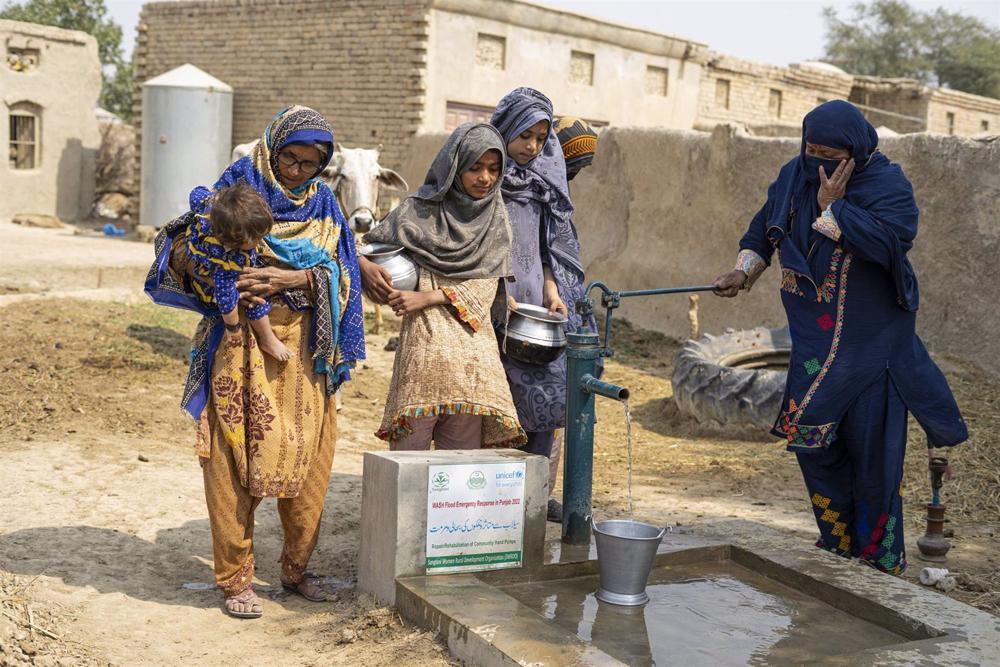
More than 10 million people living in areas affected by catastrophic flooding in Pakistan six months ago remain without safe drinking water, leaving them with no alternative but to consume water that may be contaminated, the United Nations Children’s Fund (UNICEF) warned Tuesday.
The agency recalled that, before the floods, the drinking water supply system in Pakistan covered 92 percent of the population, although only 36 percent of the water was considered safe. The floods damaged most of the systems in the affected areas, leaving 5.4 million people, including 2.5 million children, dependent on contaminated water from ponds and wells.
»Safe drinking water is not a privilege, it is a basic human right,» said UNICEF Pakistan representative Abdullah Fadil. Yet every day, millions of children in Pakistan fight a losing battle against preventable waterborne diseases and the resulting malnutrition,» he lamented.
»We need the continued support of our donors to provide safe water, build toilets and deliver vital sanitation services to these children and families who need them most,» he said. UNICEF has explained that the lack of safe water and toilets, along with the continued proximity of vulnerable families to stagnant pools of water, are contributing to widespread outbreaks of waterborne diseases such as cholera, diarrhea, dengue fever and malaria.
In this vein, the agency has detailed that the number of people relieving themselves in the open has increased by more than fourteen percent in flood-affected regions, while the lack of adequate toilets is disproportionately affecting children, adolescent girls and women, who are at greater risk of embarrassment and violence when defecating in the open.
UNICEF has further emphasized that unsafe water and poor sanitation are the main underlying causes of malnutrition, before stressing that associated diseases, such as diarrhea, prevent children from getting the nutrients they need to stay healthy. In addition, malnourished children are more susceptible to waterborne diseases.
He noted that one third of all child deaths worldwide are attributable to malnutrition and half of all cases of malnutrition are linked to infections caused by lack of access to clean water, adequate sanitation and good hygiene. In the specific case of Pakistan, malnutrition is associated with half of all child deaths.
The agency said that in flood-affected areas, more than 1.5 million children are already severely malnourished, and the numbers will only increase in the absence of safe drinking water and adequate sanitation, calling on the government and international donors to allocate resources to restore access to safe drinking water and toilets and to invest in climate-resilient water supply facilities and the use of renewable technologies such as solar pumping systems.
»It is imperative that the voices and needs of children in Pakistan are prioritized at all costs and that children are at the center of all post-flood recovery and resilience plans,» Fadil has stressed. UNICEF’s appeal for $173.5 million (about 162 million euros) to provide life-saving support to flood-affected women and children has so far received less than half of the funds needed.
Source: (EUROPA PRESS)






